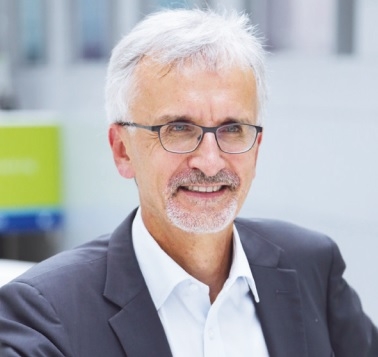Light at end of tunnel for global economy
 |
| Patrick Lenain - Assistant director, Organisation for Economic Co-operation and Development (OECD) |
In Australia, China, and New Zealand, the tight closing of borders has largely suppressed the contagion. Large-scale fiscal policy stimulus and monetary support in all G20 countries is boosting the economic revival. GDP growth of 5.8 per cent this year and 4.4 per cent next year will bring the world economy back to pre-pandemic levels by the end of 2022.
There are, of course, several downside risks that could derail this recovery. Premature monetary tightening in the United States could have a ripple effect of currency depreciations, capital outflows, and financial turmoil in emerging markets. Inflation could become more persistent than currently thought. But, overall, the long period of discomfort seems behind us. Emerging countries like Vietnam will see a rebound of their exports and the return of foreign investors that have been so important to fuel past growth. Vietnam stands out as having successfully navigated the pandemic. With a GDP growth rate of 2.9 per cent in 2020, Vietnam has shown a high level of resilience, while the world economy was diving into a deep recession.
Export activity has also benefitted from strong demand of electronic products, as people around the world moved to working from home. Vietnam was able to provide well-targeted support to businesses, thus protecting the country from the worst of the crisis. A rapid campaign of vaccination is now essential to safeguard this successful navigation.
Nevertheless, the crisis has brought to the light some weaknesses in Vietnam’s achievements. The labour market was hit hard when COVID-19 struck, particularly for those in the informal sector, who have limited access to social insurance.
In all emerging countries, it was difficult for governments to reach people without official registration. Vietnam is rightly proud of its inclusive growth model, which seeks to leave no-one behind, but more needs to be done for vulnerable people working informally. Scaling up coverage of social insurance and improving its functioning will be essential.
As Vietnam emerges from the lower middle-income status, it should aim at reducing labour informality. Essential will be to invest in people’s skills so that they can become employable with a formal job. Making it easier to hire and fire formal workers has also proved beneficial to marginal workers, who are often left behind.
Prior to the crisis, Vietnam achieved a GDP growth rate of 6.6 per cent on average – one of the strongest among Southeast Asian nations.
Sustaining similar growth rates in the future will put it on the path towards the middle-income status. Exports have been a key driver of growth, creating a virtuous cycle where thriving exports have encouraged investment in capital goods, created jobs, improved workers’ income and boosted private consumption.
While domestic firms have contributed to growth, the main engine has come from foreign-invested firms, which have been attracted by Vietnam’s skilled workers, attractive labour costs, and excellent geographic location. However, successful participation in global value chains should not be taken for granted in the post-pandemic world. Competition will be fierce. Severely hit by the pandemic, all Southeast Asian countries will seek to attract investment to restore prosperity and create jobs.
Priority should be given to improving the business environment and ensuring a level playing field, with reforms geared towards reducing regulatory burden faced by firms, enhancing governance and reducing skills mismatches. Reforms in these areas would also help Vietnam reap greater benefits from participation in global value chains.
The post-pandemic recovery is a unique opportunity to build back better and correct past mistakes. Faced with risks of climate change and environmental disasters, most countries plan very large investments to sharply cut their greenhouse gas emissions.
A database set up by the OECD to keep track of such investments in 43 countries finds that $336 billion have been allocated towards environmentally-friendly measures. However, it also finds an equivalent amount of investments that would worsen environmental damages. There is progress, but more needs to be done.
What the stars mean:
★ Poor ★ ★ Promising ★★★ Good ★★★★ Very good ★★★★★ Exceptional
Related Contents
Latest News
More News
- Vietnamese businesses diversify amid global trade shifts (February 03, 2026 | 17:18)
- Consumer finance sector posts sharp profit growth (February 03, 2026 | 13:05)
- Vietnam and US to launch sixth trade negotiation round (January 30, 2026 | 15:19)
- NAB Innovation Centre underscores Vietnam’s appeal for tech investment (January 30, 2026 | 11:16)
- Vietnam moves towards market-based fuel management with E10 rollout (January 30, 2026 | 11:10)
- Vietnam startup funding enters a period of capital reset (January 30, 2026 | 11:06)
- Vietnam strengthens public debt management with World Bank and IMF (January 30, 2026 | 11:00)
- PM inspects APEC 2027 project progress in An Giang province (January 29, 2026 | 09:00)
- Vietnam among the world’s top 15 trading nations (January 28, 2026 | 17:12)
- Vietnam accelerates preparations for arbitration centre linked to new financial hub (January 28, 2026 | 17:09)

 Tag:
Tag:




















 Mobile Version
Mobile Version